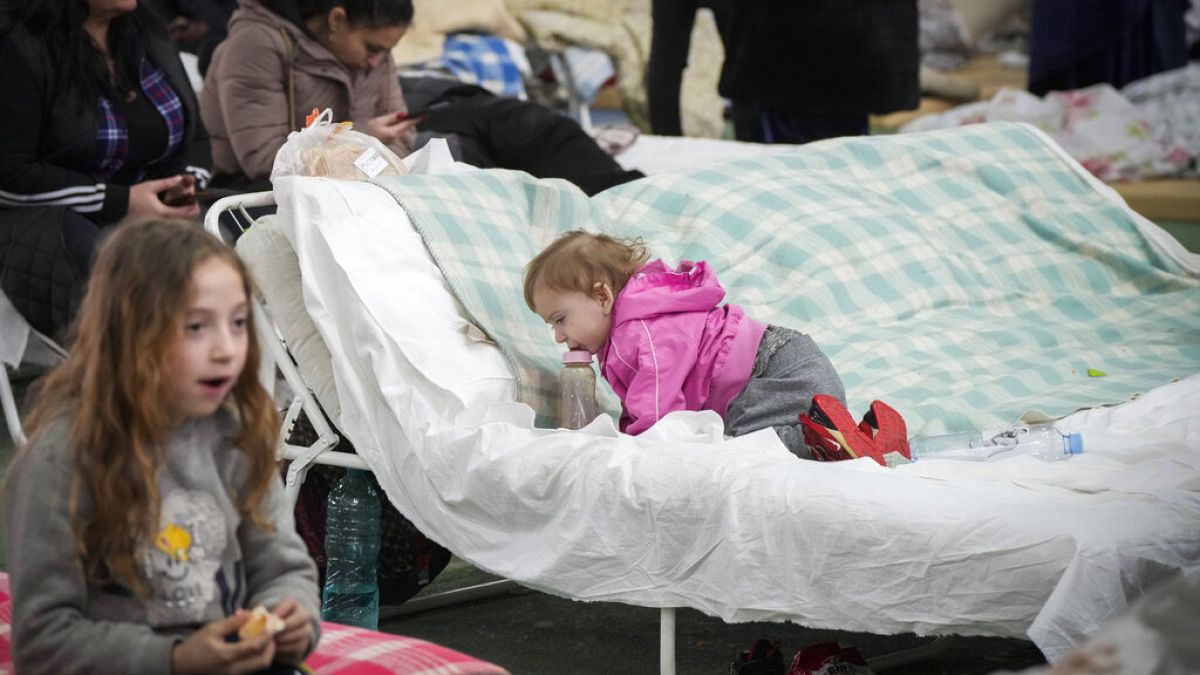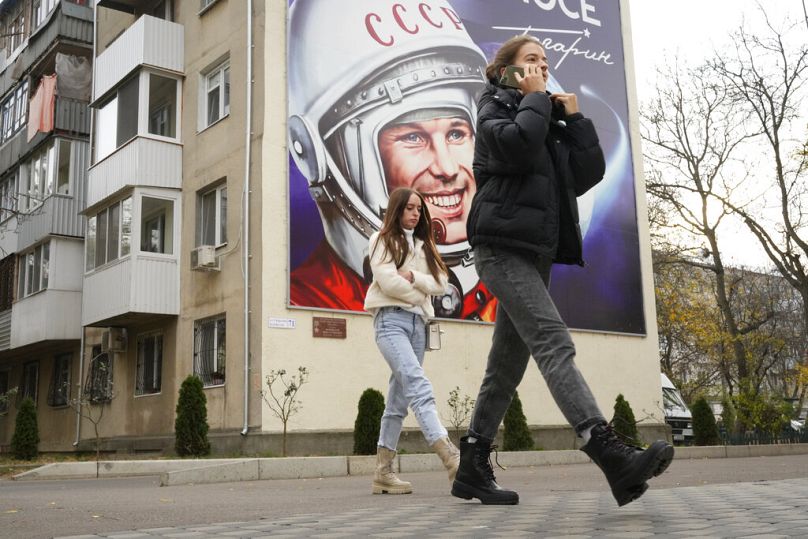On the border wth Transnistria, the Russia-backed breakaway region, some Moldovans favour Russian links over European.
Sitting in a cafe in Varnita, eastern Moldova, Vladimir, Sergiu and Ion, all in their sixties, are drinking coffee and talking about Europe.
On March 3, President Maia Sandu formally applied for Moldova to join the European Union amid Russia’s war in Ukraine. "If some decisions need time, others must be taken promptly and decisively, using the opportunities offered by the changing landscape of the world," Sandu said.
But the links with Russia in this part of Moldova are strong. Vladimir and Sergiu are both veterans of the Soviet war in Afghanistan, and Varnita - a village of 4,000 - is on the border with Transnistria, a breakaway region which has backed Moscow’s war in Ukraine.
Moldova, a former Soviet republic, is politically divided between parties - and leaders - that favour Moscow and those that look to neighbouring Romania and the EU. Sandu, in the latter camp, beat the pro-Russian candidate Igor Dodon in elections last year.
The pro-Europeans are now very much in charge. Sandu’s former party, the PAS, won 63 seats of 101 seats in parliament on an anti-corruption and pro-European electoral program. Dodon’s Socialists (PSRM) and their Communists allies won just 32.
On March 4, vice-president of the PSRM, Vlad Batrancea, spoke out against Sandu’s application to the EU.
"The integration in the EU means restriction of our sovereignty [...] such commitments are possible only through a referendum and the condition of a lasting national consensus,” he said.
PAS vice-president Vladimir Bolea countered that Moldova signed an association agreement with the EU back in 2014 and that application for EU membership was in its manifesto in 2021.
PAS deputy Dumtriu Alaiba added that EU membership is his party’s number-one goal.
"And [the goal of] the population,” he said. “Support for the EU is growing and will continue, and we have the popular mandate of the people.”
But in the Varnita cafe, Sergiu believes support for European membership in Moldova has been overstated. “We are here, and we live badly here. If it were a referendum, the people would not agree to join the EU," he said.
Ion similarly believes that political calculations are far removed from facts on the ground. Russia is - and has been - an economic lifeline, and Europe feels a long way away,
"What is the largest marketplace for Moldovan's goods? I'm telling you, Russia,” he said.
Official statistics suggest otherwise. When Russia imposed a heavy embargo in 2013 on Moldovan merchandise, production was oriented rapidly to the EU market.
As of 2022, almost two-thirds of Moldova's exports go to EU members states, with the neighbouring Romanian receiving over 25 per cent of all the exported goods from Moldova.
Meanwhile, the latest statistics in December 2021 showed that less than eight per cent of the Moldovan exports go to Russia and 15 per cent in total in the CSI countries.
In 2021, Moldova exported goods worth $ 3.1 billion, 27.5 per cent more than in 2020. It is the most significant volume of exports in the last decade.
More than 61 per cent of the volume of exports of goods reached the European Union market. Most of it was exported to Romania - 26.5% of total goods.
But such statistics do persuade Vladimir: "During the Soviet Union period, we had many kolkhozes in Varnita. Now there is none, as they are all destroyed,” he said.
Ion, referred to as Vaniusha, the Russian translation of his name, by his friends.
“It's the Americans' fault that we do not produce anything in Moldova now, and we used to make everything here. Europe must make the investments made by the Russians here in Moldova from 1940 to 1970,” he said.
"Back then, there were factories that produced a lot of canned fruits and vegetables," he added.
Not everyone in Varnita agrees. Maria, 35 and a mother of two, wants to a better future for her kids and joining the EU is the only alternative she sees for Moldova, the poorest country in Europe.
"I believe that our children will have a better future. We don't care anymore, but our children deserve a better destiny," she said.
Meanwhile, Radu Magdin, an analyst, said that pro-Russian sentiment in Moldova can be overstated, and recent polls showed pro-EU sentiment as high as 70%.
“The general sentiment may be even more ‘pro-Western’ - EU, NATO, US - since the Russian invasion and subsequent humanitarian crisis, which hit the country quite hard,” he said.
Transnistria
As well as opposing Sandu’s call for EU membership, the authorities in Transnistria have warned Chisinau that any steps towards it will automatically ending negotiations on the Transnistrian frozen conflict.
"We consider the submission by the leadership of Moldova of an application for accession to the European Union to be a geopolitical decision leading to a change in international borders and spheres of influence in the regional space and a radical change in the circumstances of final settlement of Moldovan-Transnistrian relations," said the government in Tiraspol.
"The Transnistrian response was to be expected. Tiraspol has always played an important role in Russia's strategy of straining the situation in the Republic of Moldova, regardless of the times,” political expert Mihai Isac said.
He argued that Tiraspol's decision is aimed at straining the situation in both Moldova and Ukraine.
"Kyiv is forced to maintain significant military forces on the border with Moldova due to the presence in the Transnistria of the Russian army group and the paramilitary forces of the separatist regime", he added.
Russia has kept for about 30 years some 1,500 - 2,000 soldiers in the breakaway region of Transnistria.
Some are peacemakers forces with an international mandate. There is also the Operative Group of Russian Troops, OGRT, without legal ground to guard an old-Soviet ammo depot in Cobasna. The OGRT is directly subordinated to the Russian Army Western Military District in Sankt Peterburg.
Angela Gramada, director of the Experts for Security and Global Affairs Association, ESGA, told Euronews that as for the opposition political actors in Moldova - the pro-Russian Socialists - they do nothing but undermine the authorities' efforts to achieve national interests.
She argued that both pro-Russian Socialists and Tiraspol messages are synchronized.
"The speech and the actions we are seeing now in Tiraspol do nothing but complement this series of elements of sabotage of all the efforts Moldova to make European integration irreversible,” she said.
“The way their claims are formulated and the final beneficiary, Russia, confirm that the messages are coordinated.”

